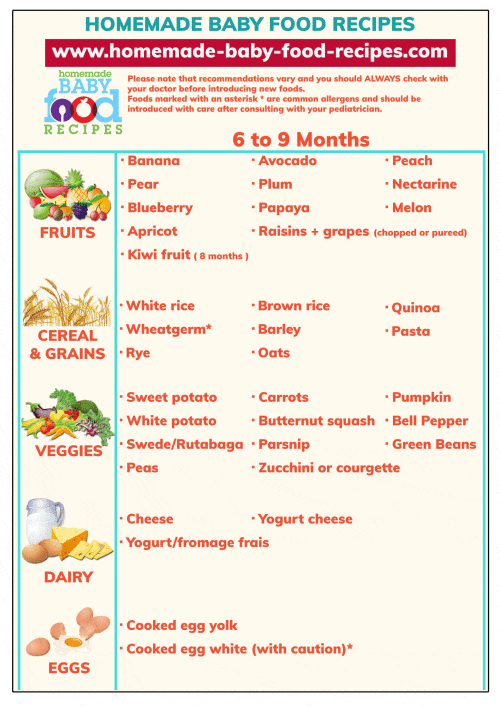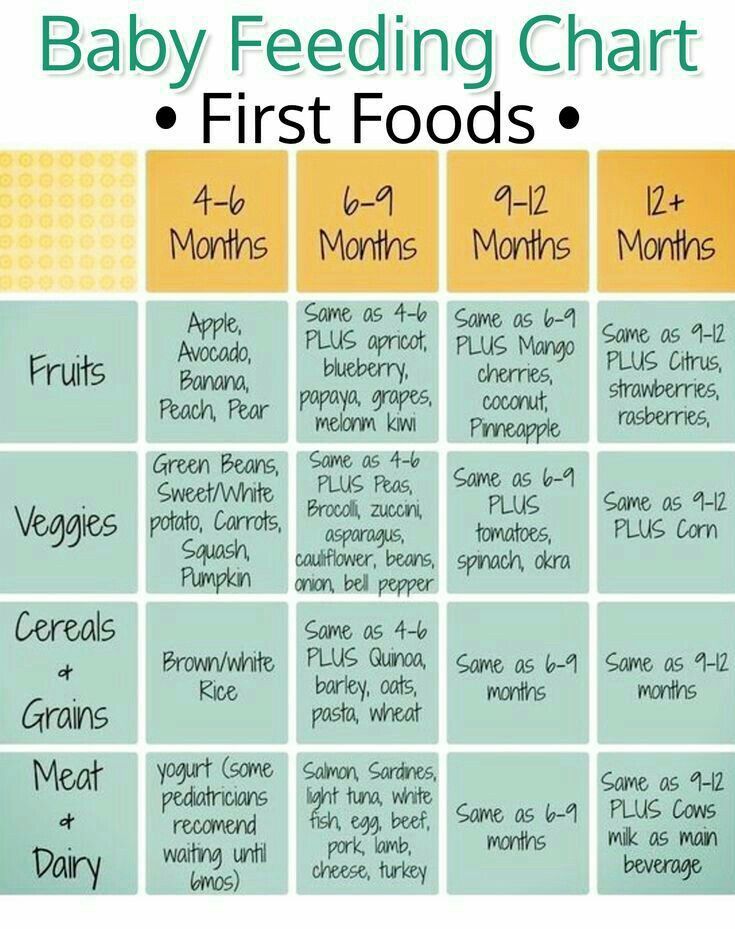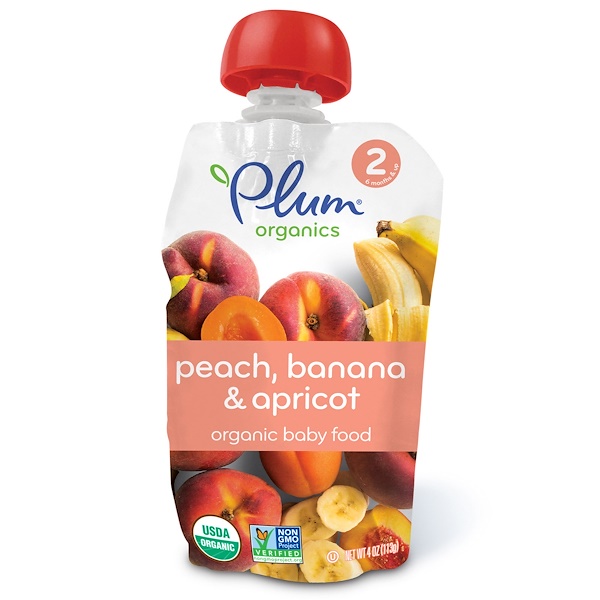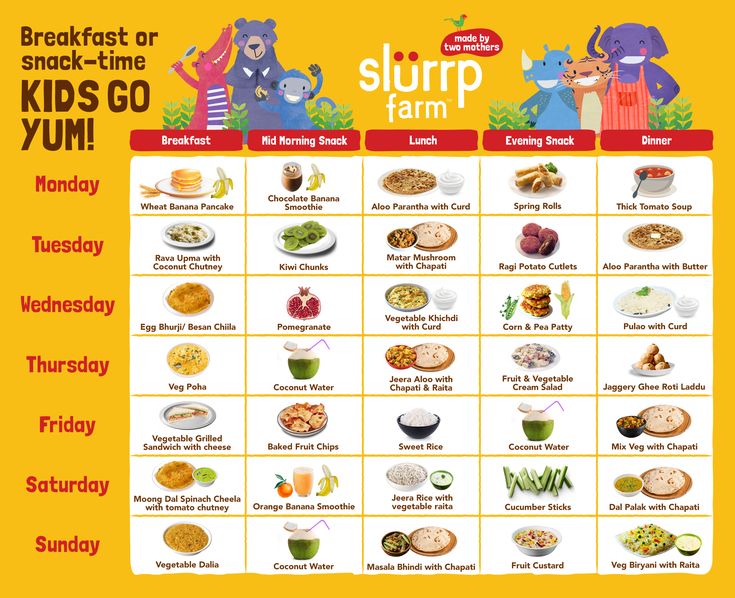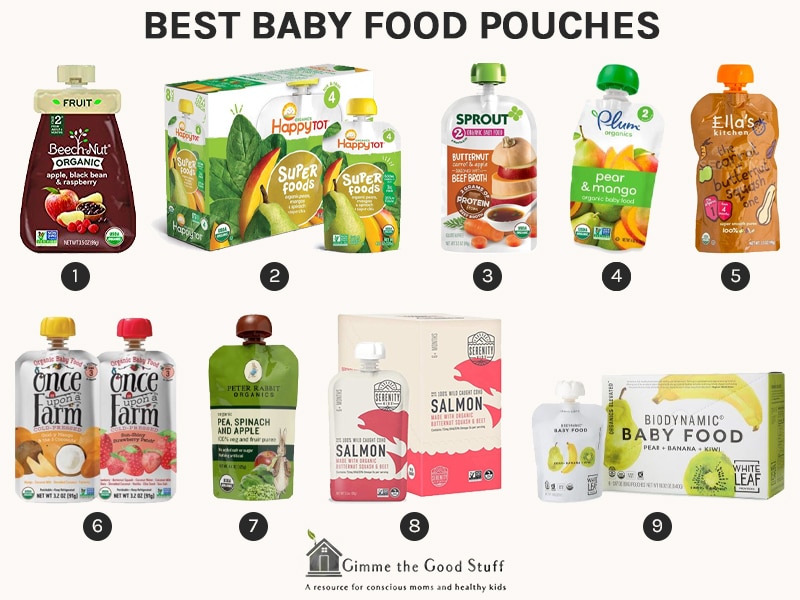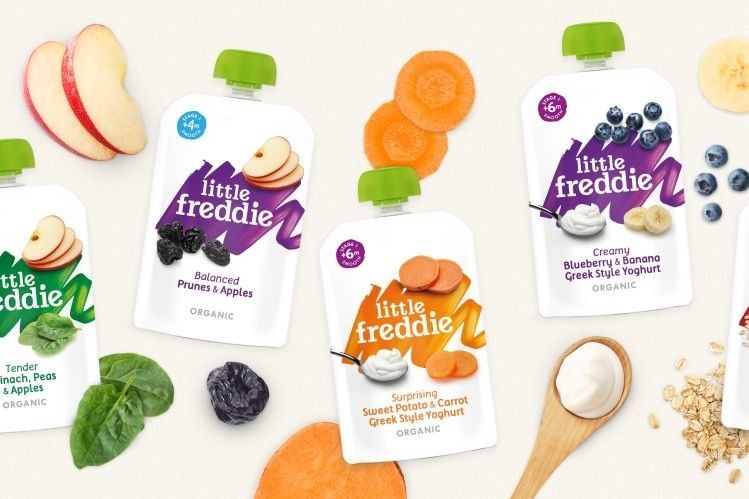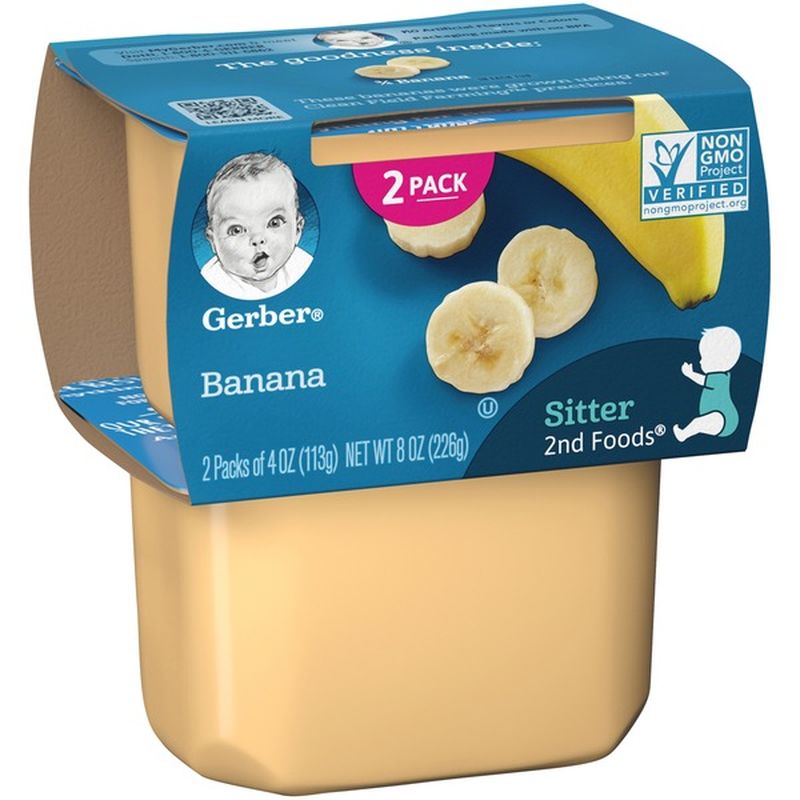Best baby food in india for 6 month old
6 Month Baby Food - List of Indian Food For 6 Month Old Baby
Congratulations Mommie…! Your little bundle of joy turned 6 months old. Now your baby is all ready to start his/her first solid foods. Trying food for the first time is a big milestone for a baby. Food can be exciting for a baby and can take some getting used to. Some babies will take to it right away, others it might take a few months. Mommies, don’t forget to capture when your baby will take his first food. It will be very precious as he will make different cute expressions. I know you were waiting for this moment eagerly. Now the question arises what to feed and how to feed a baby? So, in this post I have shared Indian First Foods for 6 months old Baby and tips on how to start baby’s food.
FOODS THAT WILL BE BEST FOR A 6-MONTH-OLD
Many, many congratulations on your baby completing 6 months in this world. Congratulations on graduating as a breastfeeding mom. You must wonder if it’s time to feed the baby his/her first solid food. First of all, don’t be paranoid or don’t be anxious, you’ve got this. Secondly, don’t forget to capture the moment because the occasion is really special. If you’re confused about 6-month baby’s food, we ‘re here to help you out.
NOTE: Introduce the solid foods only at the age of 6 months because the digestive system is not strong enough to handle. And you must continue breastfeeding/ formula milk to the baby.
You may be interested in reading – Best Breastfeeding positions for Mother and Baby
Before sharing the best Indian First Foods for a 6 months old Baby or food for a 6 months old baby, let us know important tips on how to feed which are discussed below.
Important tips on how to start baby’s first solid foods:
- New foods should be introduced one at a time. A gap of 3 days should be there in between two new foods so that if any problem develops (any food allergies in baby) it can be readily identified.

- If a baby develops any food allergy then stop feeding that particular food.
- So, always remember to go by the “3-days wait rule” for babies. Thus, a food should be tried for minimum 3 days before the infant is permitted to reject it.
- Introduce the new foods only in the mornings to see how your baby adapts that food.
- Never mix new foods together. Introduce them separately first to see whether the baby can digest the same or not.
- When we introduce new food only a taste or two is sufficient for the first try. Even if the baby takes the food eagerly, small amounts should be given to keep the sufficient appetite for milk. Remember don’t stop breastfeeding/ giving Formula Milk to the baby.
- Always try to introduce vegetables rather than fruits because of the humans’ inborn preference for sweets.
- Be careful while feeding your baby as some solid foods can cause constipation.
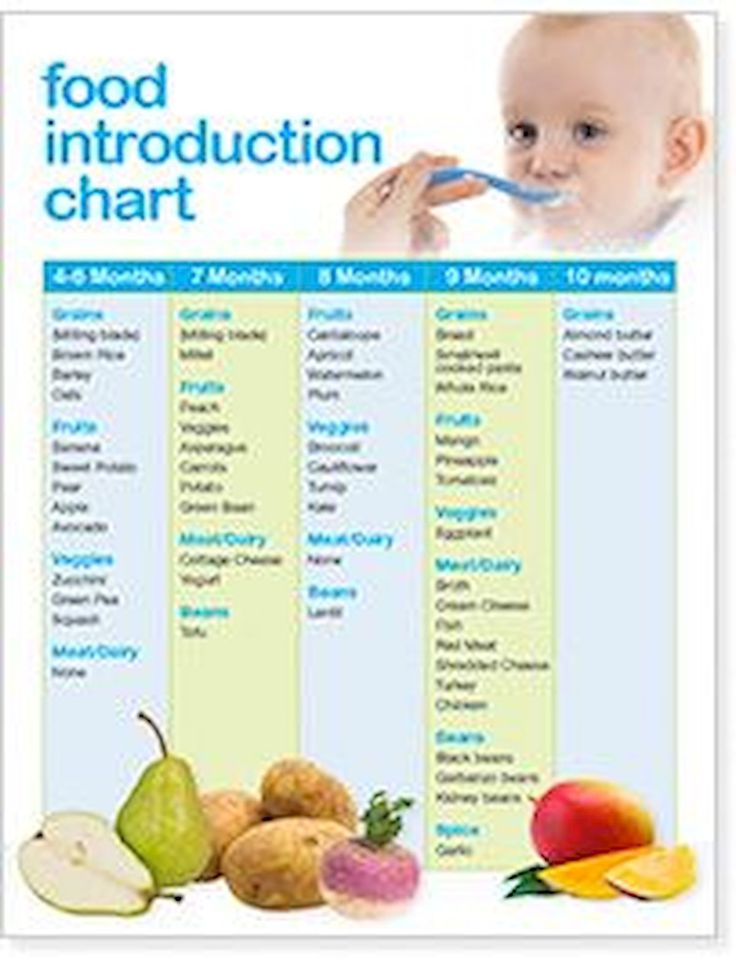
- The parents should heat a small amount to serve the infant. The food that has been heated and not consumed should be discarded because of the possible contamination with the salivary enzymes and bacteria. Food that has been opened but not heated can be stored in the covered jar in the refrigerator.
- Care must be taken to offer only food that the infant can chew and swallow safely.
- Always give home-made and fresh nutritious food to your little one.
- Avoid feeding Cow’s milk, raw vegetables, nuts, too much salt and sugar before the age of one year.
You may be interested in reading – Foods unsafe for your baby (below the age of 1 year)
As your baby is ready to wean, here are Best Indian First Foods for 6 months old Baby. And trust me, all are very easy to make.
You may be interested in reading – Indian Diet Plan for 6 months old baby
Here’s baby food for 6 months:
Best Indian First Foods for 6 months old Baby:1.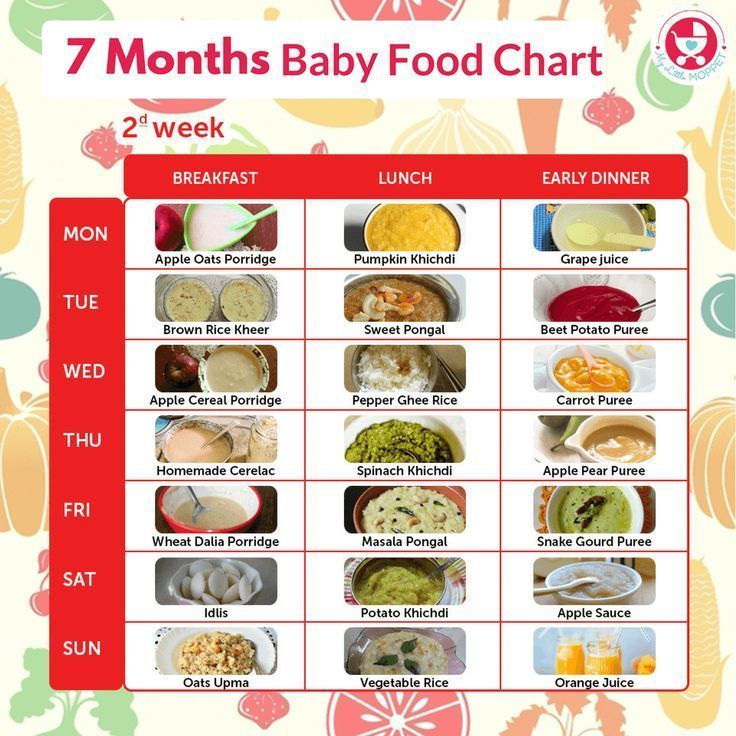 Cerelac
CerelacIt is probably one of the most nutritious and wholesome foods for a 6- month baby. Please don’t buy it outside if you can make it at home.
Its ingredients include boiled rice, apple, and formula milk. Here’s the 6-month baby food recipe:
First, boil the rice. Steam the apple and churn the boiled rice and the steamed apple in a blender and add some formula milk in the end.
Ingredients:
- Boiled Rice
- Apple
- Formula milk
How to prepare it:
- Boil the rice.
- Steam an apple for 10-15 mins then take off its peal.
- Churn rice and apple in a blender.
- Add formula milk according to the desired consistency.
This is another best first food a mother should give to her little one. Sooji (Semolina) enhances bone density, is good for the nervous system and excellent for the heart as well. This is one of the best Indian First Foods for a 6 months old baby.
This is one of the best Indian First Foods for a 6 months old baby.
Ingredients:
- Sooji (2 Tablespoon)
- Water (Double the amount of Sooji)
- Desi ghee (1 Tablespoon)
- Almond powder (crush the almonds in a jar)
- Apple puree (for taste as sugar is not added)
How to prepare it:
- Dry roast Sooji in a pan.
- Boil water in another pan.
- Add Sooji in boiling water and make sure that there are no lumps of Sooji.
- Add desi ghee to it.
- Add almond powder to it.
- Switch off the flame.
- If you wish you can add apple puree in it. Or you can add Breast milk or Formula milk to make it runnier. And it’s ready to serve it.
Dal ka Paani is one of the best weaning foods for a baby. This is one of the easiest recipes and best Indian First Foods for a 6 months old baby.
Ingredients:
- Yellow Moong Dal (2 Tablespoon)
- Water (1 cup)
- Turmeric (1 pinch)
How to prepare it:
- Soak the dal in water for 15-20 min.
- Now put the soaked dal in the cooker.
- Add 1 cup of water and 1 pinch of turmeric in that. Close the lid of the cooker.
- Cook for 2-3 whistles and then switch off the gas stove.
- Open the cooker after its pressure is released on its own.
- Pass this dal water through the sieve so that your baby can easily consume that smooth soup now.
- Make sure when you offer your baby Dal, Paani is not so hot.
Apple is “Food of Gods” as it has many advantages. Again, it is one of the best first foods for a 6 months old baby as it can cure stomach disorders, diarrhea and constipation in babies. You can give an apple to your little one in its stew form.
You can give an apple to your little one in its stew form.
How to prepare it:
- Peel and cut an apple into small pieces. Wash them off.
- Now in a bowl, take fresh water, put this sliced apple into it and keep it in low heat flame.
- Boil them till they become soft so that they can be completely mashed.
- Once done, let it be cool. Now, serve it to your baby.
This is again considered by most of the mothers as their baby’s first grain food. Rice should be offered first to avoid allergies.
Ingredients:
- Brown Rice Powder (Grind rice powder well in a blender) (2 tablespoon)
- Water (1/2 cup)
- Breast Milk / Formula Milk
How to prepare it:
- Take 1/2 cup water and let it boil.
- Put Brown Rice Powder in boiling water and stir it gently so that the rice doesn’t stick to the pan.
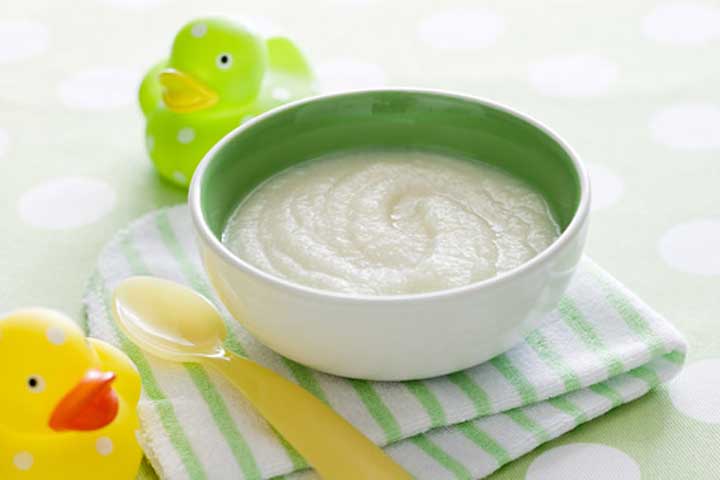
- Stir it until it becomes thick and creamy in texture.
- Turn off the gas and let it cool down a little and add Breast Milk / Formula Milk when you offer to your baby.
You can give your baby Fruits Puree in their first foods such as Apple Puree, Pear Puree, Banana Puree and Mango Puree. All these Puree’s are regarded as the best Indian First Foods for a 6 months old baby or best 6 month baby food. Their Recipes are as follows:
6. Pureed AppleHere’s the recipe for pureed apple:
Peel the apple, steam it, let it cool down and then boil it in the blender. Serve it in a bowl. It is one of the most common babies’ first foods, 4-6 months in India.
How to prepare it:
- Steam the apple for 10-15 mins.
- Take off the peel of the apple.
- Let it cool down
- Blend it in a blender.
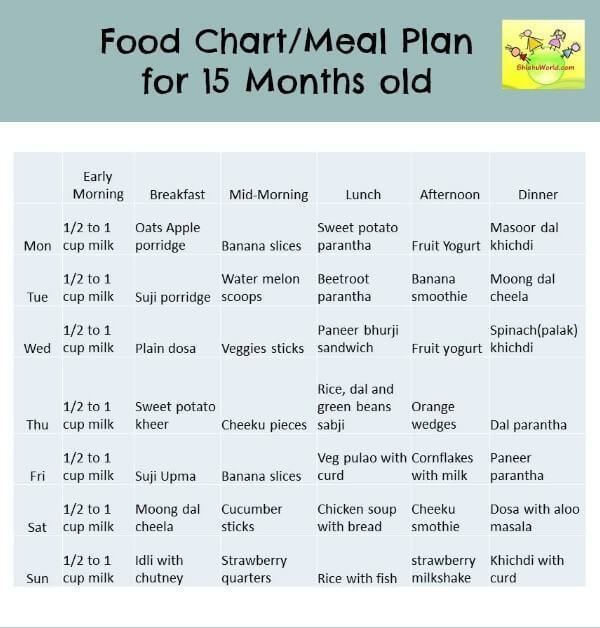
- Pour it in a serving bowl.
Pear is another good first food as it is a source of vitamins and minerals. Also, the babies can easily digest it.
How to prepare it:
- Steam the pear for 10-15 mins.
- Take off the skin of pear.
- Let it cool down.
- Blend it in a blender.
- Pour it in a serving bowl.
Bananas are the best choice when it comes to give to your baby as their first food. It helps in controlling diarrhea and treating constipation in babies.
How to prepare it:
- Take off the skin of Banana.
- Mash it nicely with a fork/spoon or you can blend it in a blender until it is smooth. Now, serve it to your baby.
- For extra creaminess, you can also add Breast Milk/ Formula Milk.

Mango helps in brain development, healthy eyes, better digestion and weight gain in babies.
Read more: Best Foods for Weight Gain in Babies
How to prepare it:
- Mash the mangoes nicely.
- Mash it with a fork/ spoon. Now, serve it to your baby.
You can also give your baby Vegetable Puree in their first foods such as Ghea Puree, Carrot Puree and Peas Puree. Their Recipes are as follows:
10. Pureed Ghea (Bottlegourd)Ghea is the powerhouse of nutrients so it is considered as the best Indian First Foods for a 6 months old baby.
How to prepare it:
- Steam the ghea for 10-15 mins.
- Let it cool down.
- Blend it in a blender.
- Pour it in a serving bowl.
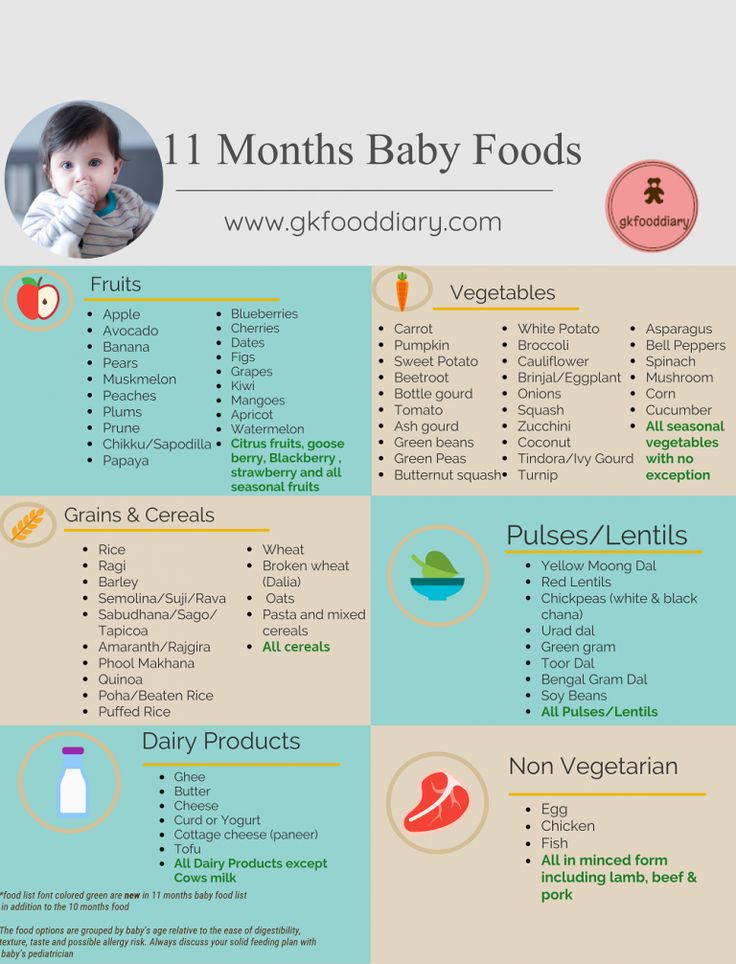 Pureed Carrot
Pureed CarrotCarrot is a good source of vitamins and minerals. It is also good for disturbed bowel movement hence it is a remedy to stop diarrhea in babies.
How to prepare it:
- Steam the carrot for 10-15 mins.
- Let it cool down.
- Blend it in a blender.
- Pour it in a serving bowl.
Although Peas look small, they are a powerhouse of nutrients. So, it is one of the best Indian First Foods for a 6 months old Baby. Although it can cause gas in a baby, so be a little careful. And yes, always remember to go by the “3-day wait rule” for babies.
How to prepare it:
- Steam the peas for 10-15 mins.
- Let it cool down.
- Blend it in a blender.
- Pour it in a serving bowl.
 Chawal Ka Pani (Rice Water)
Chawal Ka Pani (Rice Water)Rice water is again one of the best Indian First Foods for 6 months old babies as it is a good source of essential nutrients. It can be given once during the daytime to babies as frequent consumption of rice water can lead to cough and cold as rice is cold in nature. It is also a remedy to stop diarrhea in babies.
How to prepare it:
- Take ½ cup of uncooked rice and rinse it properly to remove impurities and dirt.
- Now soak the rice in water for 20-30 minutes.
- After soaking it, drain out the water and bring this rice to boil in 2 cups of water.
- Boil it till 20 minutes.
- Sieve the rice water in a soup.
- Turn off the gas and let it be cool. Once it gets lukewarm serve it to your baby.
Mixed vegetable soup is supposed to be given to your 6-month-old in the third week of the 6th month.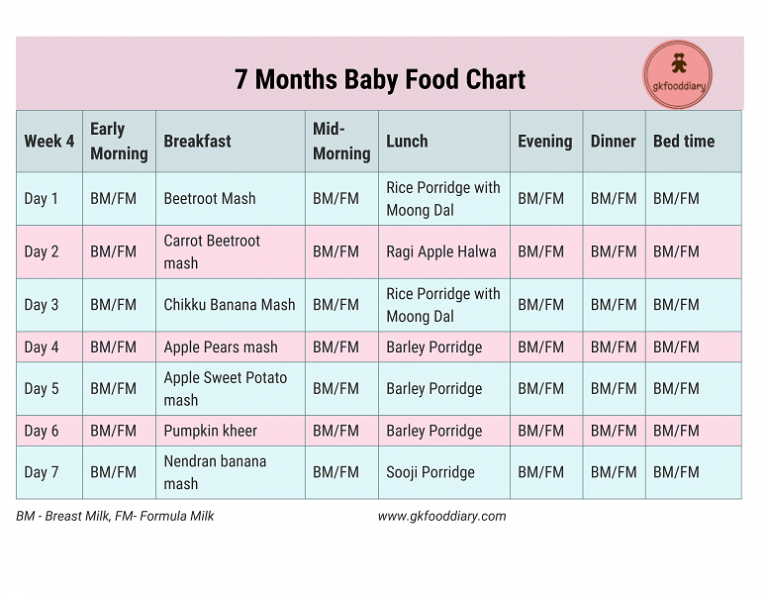 Its ingredients include a potato, peas, and a carrot.
Its ingredients include a potato, peas, and a carrot.
Oil all the vegetables and then put them in a blender to blend and then serve to the baby.
Ingredients:
- Potato
- Peas
- Carrot
How to prepare it:
- Boil the Veggies in water.
- Let it cool down.
- Blend all the veggies together.
- Sieve it and serve it to your baby.
It is filled with vitamin C, iron and other nutrients essential for your baby’s diet
Ingredients:
- ¼ sweet pumpkin
- Water
How to prepare it:
- Dice the pumpkin into small cubes after deseeding them and removing the pulp
- Boil around 2 cups of water
- Add the water and cubes of pumpkin in blender and blend them until it comes down to a fine taste.

Avocado is an excellent food for your baby, and it can be introduced as early as 4 to 6 months
of age. How to Make Avocado Puree for Babies: This puree can be made with half a ripe avocado. Cut and scoop out the avocado’s contents. Mash it well with a fork or blend it thoroughly in a blender. Check for lumps.
Nutritional Advantages: Avocado contains essential nutrients for the baby’s brain and central nervous system development. It is also high in fibre. It also has anti-inflammatory and anti-microbial properties, which help to keep infections at bay.
17. Pureed Sweet Potatoes:Because of their sweet flavour, sweet potatoes are easier to introduce to your baby than other vegetables. As a result, pureed sweet potato is an excellent choice for Stage 1 foods.
How to Make Pureed Sweet Potatoes for babies: Peeled sweet potato, cut into small cubes (about half-inch). In a pot, bring water to a boil and add the cubes.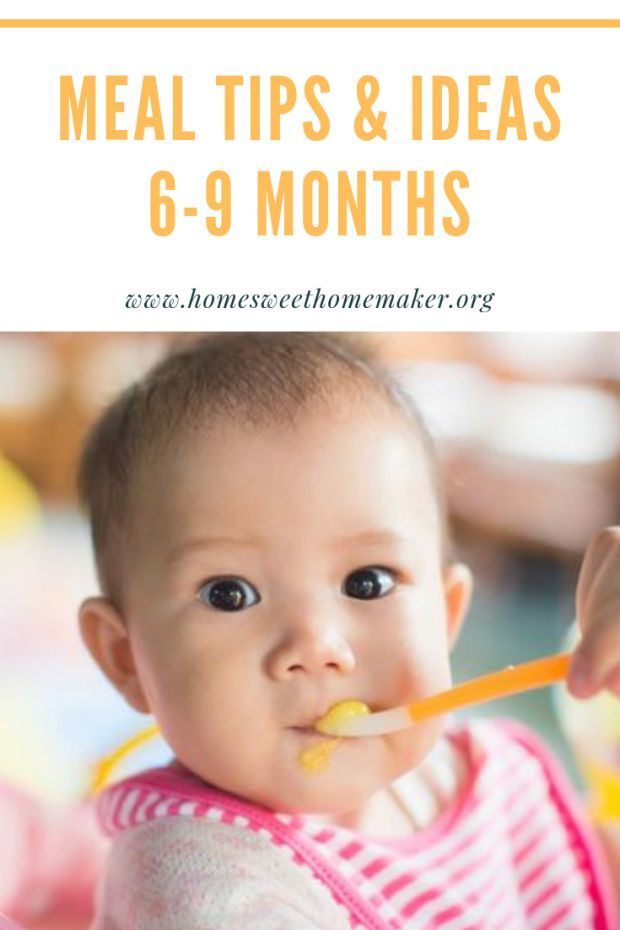 Reduce the heat to a low setting and continue to cook until the pieces are tender. This will take approximately 15 minutes. Place these sweet potato cubes in a food processor. Blend until completely smooth.
Reduce the heat to a low setting and continue to cook until the pieces are tender. This will take approximately 15 minutes. Place these sweet potato cubes in a food processor. Blend until completely smooth.
If you don’t have a food processor, mash it by hand with a fork or other utensil. To make the sweet potatoes a suitable consistency, you can also use milk (breast or formula).
Nutritional advantages: Sweet potatoes are high in nutrients. They contain a lot of vitamin A. They also contain vitamin C, potassium, fibre, and antioxidants.
NOTE: These recipes are just an idea, you can make it in whichever way you want to.
Consider it a mini-6-month baby diet chart. Even if you’re looking for some other month’s diet chart, remember to follow the 3-day rule. If you notice that the baby is reacting to those foods, stop right away. Diarrhea, vomiting, constipation, and consistent crying can be a sign. In that case, please consult a pediatrician.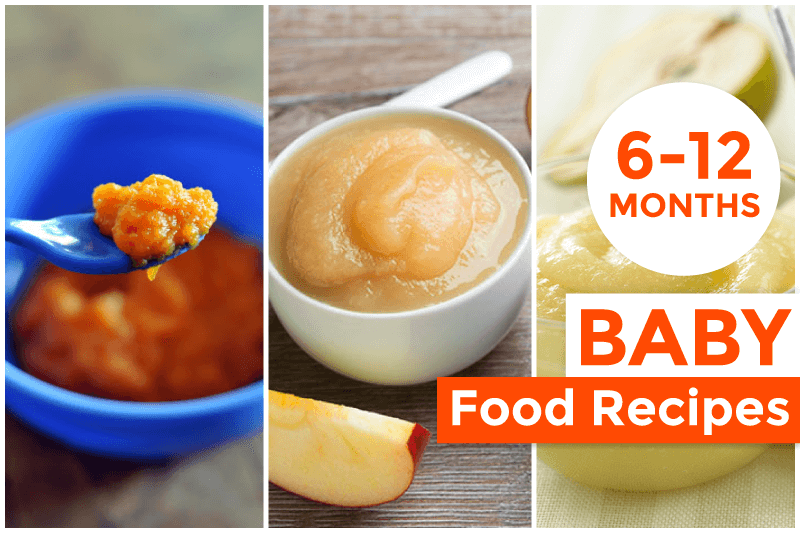
An allergic reaction can take the form of vomiting or constipation etc. which is a cause of concern. Stop the food you are giving if your baby shows these signs or signs of allergic reaction, if still these reactions persist, consult a doctor.
Food safety Do’s and Don’ts- Don’t feed solid foods to your baby through a bottle as it can cause choking.
- Do Supervise while your child is eating is really essential
- Don’t feed your baby directly from the jar instead spoon some food as feeding directly from the jar can cause bacteria as it will transmit through your baby’s mouth to the spoon and ultimately to the jar
- Do discuss with your pediatrician about the possible risks of food allergies and monitor food allergies by introducing new foods slowly while seeing the reaction of each food in the baby’s body
Readiness for solids in children depends on their own rate of development. Some signs that can show that a baby is ready for transition to solids is sitting up with minimal support, good head control, and the baby reaching out for food of other family members
Some signs that can show that a baby is ready for transition to solids is sitting up with minimal support, good head control, and the baby reaching out for food of other family members
If the baby is getting started with solids, foods with soft texture like pureed meats or beans, poultry or cereals which are iron fortified is recommended
Weaning from breastfeedingBaby’s developmental readiness should be seen before deciding if you should wean your baby to a bottle or cup. If a baby of around 6-8 month old is seen, they drink in liquids in small amounts if someone else holds the cup for them while older babies have the required coordination of drinking fluids by themselves from the cup. If your baby is under one year or 12 months old and you are not breastfeeding him wean from breast milk to iron fortified milk for infants.
6 months baby food chart for IndiansThe order in which solid foods are introduced is up to you. However, for babies who have been breastfed primarily, puréed meats, poultry, beans, and iron-fortified cereal is recommended as a first food, as they provide essential nutrients.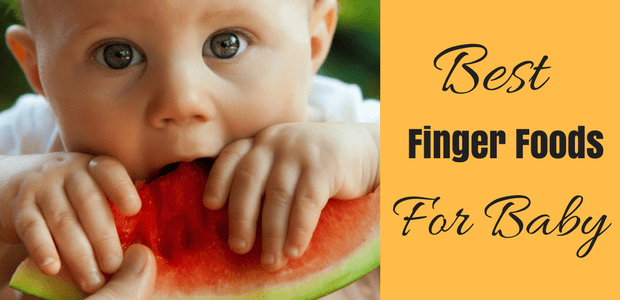 It is not good to introduce multiple new single-ingredient foods at the same time.
It is not good to introduce multiple new single-ingredient foods at the same time.
- Early morning (7:00 am- 7:30 am) – breast milk or formula milk
- Breakfast (8:30-9:00 am) – breast milk or formula milk
- Mid morning (10:00- 10:30 am) – breast milk or formula milk
- Lunch ( 1:00- 1:30 pm) – banana puree / any fruit puree
- Evening ( 4:00 -4:30 pm) – rice porridge with moong dal or breast milk
- Dinner ( 6:00-6:30 pm) – breast milk
- Bed time ( 7:15- 7:45 pm) – breast milk
It is recommended by health professionals to continue breastfeeding after the introduction of solid foods for up to 12 months, then as desired by the mother and baby. Solid foods are a milestone for your child and should be celebrated. Children learn a healthy relationship with food when they are introduced to solid foods, and they establish a healthy eating style as a consequence.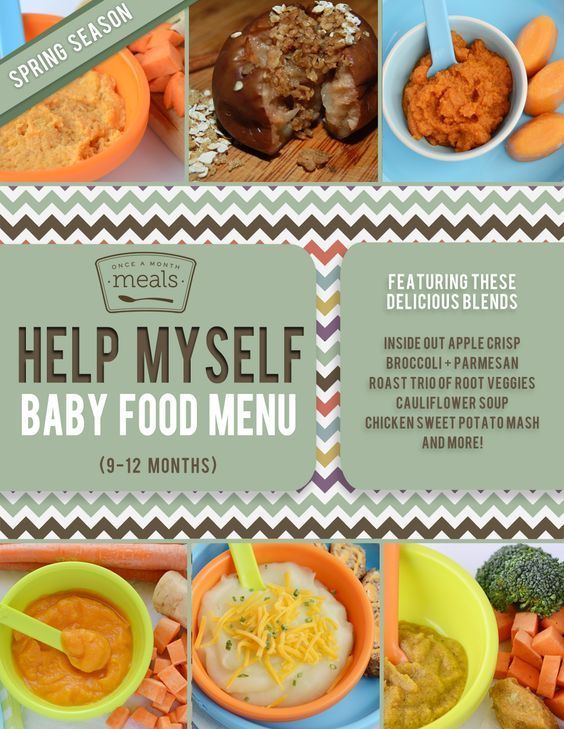 As a general rule, solid foods cannot be introduced before the four-month mark, after the sixth month you may consider giving him or her a little taste of solid food but it all depends on the infant. Carefully learn about Indian food for 6 months baby and take a step. You can always refer to the 6 Months Food chart for Indian Babies given above in the article.
As a general rule, solid foods cannot be introduced before the four-month mark, after the sixth month you may consider giving him or her a little taste of solid food but it all depends on the infant. Carefully learn about Indian food for 6 months baby and take a step. You can always refer to the 6 Months Food chart for Indian Babies given above in the article.
During infancy, it is critical to establish a positive feeding relationship. It is crucial to pay attention to each spoon of food that you feed your baby because a small mistake can make life difficult for your little one. You should encourage your baby to touch the food in the dish or on the spoon. This will help create a strong relationship between the baby and the food. This suggests that the baby is trying to know about what that thing is and generating curiosity in his or her mind. It is also necessary to know the cues that your baby is done eating. Head-turning is a common cue among babies.
FAQ’s1.
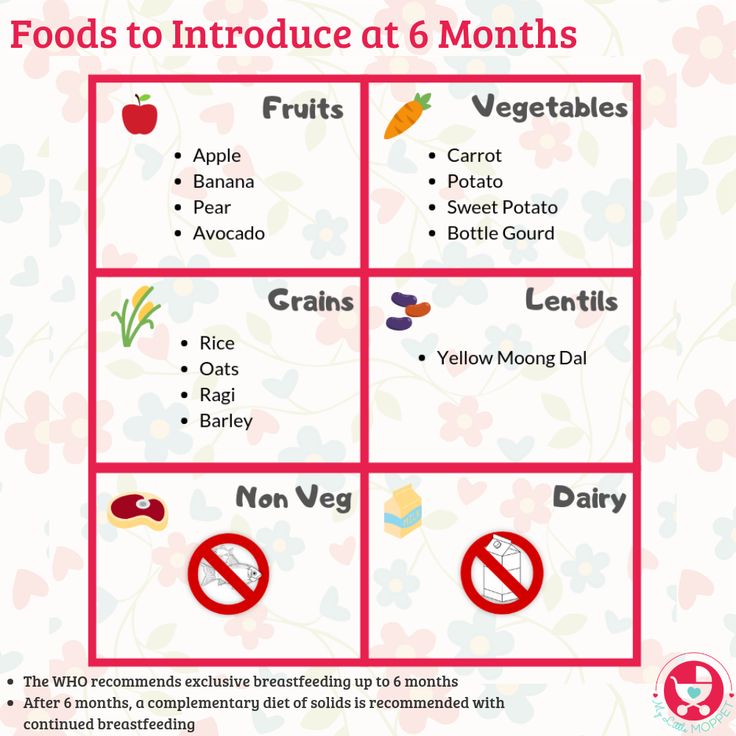 Which baby food is best for a six-month-old?
Which baby food is best for a six-month-old?Cerelac, Sooji kheer, Daal ka Pani, Stewed apple, Rice cereal, Pureed apple, Pureed pear, Pureed banana, Pureed Mango, Pureed Ghea, Pureed carrot, pureed peas, chawal ka paani, Mixed vegetable soup, sweet pumpkin puree, Avocado puree and pureed sweet potatoes are some of the food items that are 6 month baby food that are nutritious and healthy and will help the child with all the vitamins are proteins that they need.
2. What kinds of food can I feed my six-month-old?
To grow up healthy, strong, and intelligent, 6 month baby food require a daily supply of wholesome nourishment. Your baby requires more energy and nutrients than ever at around six months old since she is growing swiftly. Try blending, mashing, or soft cooking , potato, yam, sweet potato, carrot, apple, or pear to start weaning your baby. You may also give baby rice water and dal ka paani. This can be included in a 6 months baby food chart for Indians.
3.
 What foods should a six-month-old avoid eating?
What foods should a six-month-old avoid eating?Foods that can be avoided in indian food for 6 month old baby or in general could be too much of salt or sugar, Nuts and peanuts some kids might be allergic to them.Children under the age of five shouldn’t be given whole nuts or peanuts since they can choke on them.
Before introducing nuts and peanuts, consult your GP or health visitor if your family has a history of allergies, including food allergies.On rare occasions, newborn botulism, a highly deadly condition, can result from bacteria found in honey that generate toxins in a baby’s intestines. Give honey to your child only after they have reached the age of one. Avoiding honey, which is a sugar, will also help prevent tooth decay.
Happy Parenting!
You may be interested in reading-
Best Indian Solid Foods for 7 Months Old Baby
Indian Diet Plan for 7 months old
- About the Author
- Latest Posts
About Isha Ahuja
I am Isha Ahuja, Nutritionist and Weight Loss Consultant. I am blessed with an angel who is 3 years old. In all the stages of my life till date I feel “PARENTING” is the toughest of all. This is the stage where every single parent wants the best for their tiny ones. No matter what professional/non- professional backgrounds we belong to when we become a mommy its altogether a new journey and a new research that we have to start be it breastfeeding, weaning, toilet training and everything related to upbringing of a baby. So, here I am to share my experiences and advises with the new parents which can help you all in raising your tiny ones and giving them the best what they deserve.
I am blessed with an angel who is 3 years old. In all the stages of my life till date I feel “PARENTING” is the toughest of all. This is the stage where every single parent wants the best for their tiny ones. No matter what professional/non- professional backgrounds we belong to when we become a mommy its altogether a new journey and a new research that we have to start be it breastfeeding, weaning, toilet training and everything related to upbringing of a baby. So, here I am to share my experiences and advises with the new parents which can help you all in raising your tiny ones and giving them the best what they deserve.
- 7 Month Baby Food Recipes - January 19, 2021
- 7 Month Baby Food Chart - January 19, 2021
- 9 Month Baby Food Chart - January 14, 2021
- 9 Month Baby Food Recipes - January 14, 2021
- 10 Month Baby Food Chart - January 14, 2021
- 8 Months Baby Food Chart for Indian - January 14, 2021
- 17 Best Indian 6 Months Baby Food - January 14, 2021
- Indian Food Chart Recipes for 8 Months old Baby - February 20, 2018
- Indian Diet Plan for 6 Months Old Baby - January 12, 2018
View All Posts
6 months baby food chart with baby food recipes
By Swasthi on August 6, 2022, Comments,
6 months baby food chart with baby food recipes. The best time to start solids for babies is after 6 months. There are many sources suggesting introduction of solids from 3 to 4 months. But an early introduction of solids can lead to more colic, digestive troubles and allergies.
The best time to start solids for babies is after 6 months. There are many sources suggesting introduction of solids from 3 to 4 months. But an early introduction of solids can lead to more colic, digestive troubles and allergies.
A baby develops digestive enzymes in between 4 to 6 months which are crucial for digestion of foods. It is a good choice to wait until the baby develops these enzymes completely.
A baby typically begins to develop head control from 3 to 4 months and gains strong head to neck muscles by 6 months. A strong head to neck control helps the baby to accept solids well and can easily swallow.
So by 6 months a baby has a better digestive system and a good head control which are needed before the introduction of solids.
Breast milk is the best bet for the overall growth of a baby. It is recommended to exclusively breast feed a baby for the first 6 months.
As an exception, formula milk is an alternate for women who cannot breast feed baby due to professional, personal or medical reasons.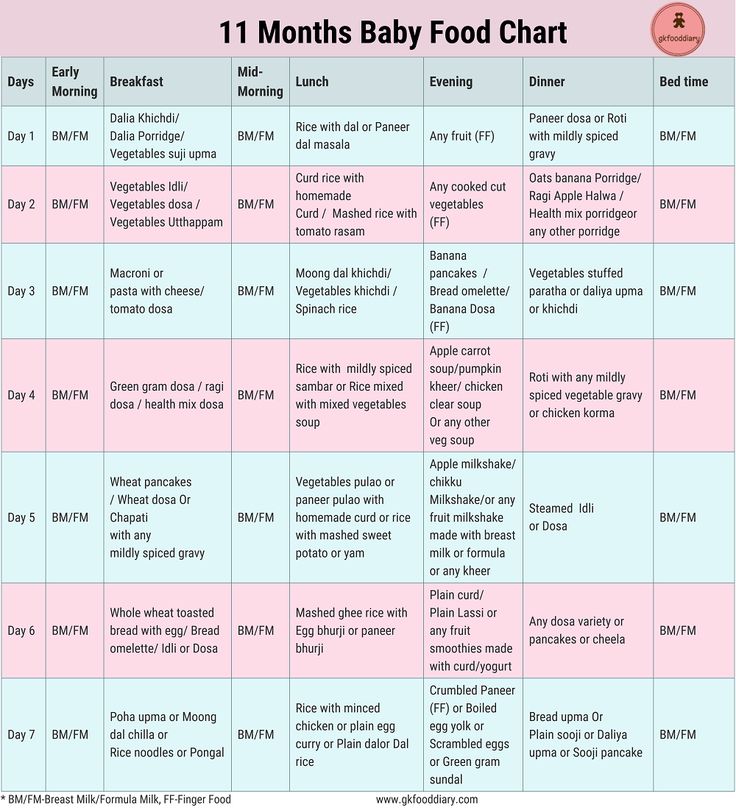
If you have a baby older than 7 months, you can follow this complete
baby food chart for 8 months old and above
How do you know your baby is ready for solids?
1. The baby’s head & neck are stable. This means baby can accept food and swallow.
2. Baby must be able to sit stable with or without support.
3. Shows interest in food when others are eating.
4. Baby must be able to open the mouth when food is offered.
5. Baby is still hungry after breastfeeding or formula feed.
Tips on how to start solids for baby
First consult your pediatrician to confirm if your baby is ready for solids. It is very important to plan well before you introduce any other foods apart from breast milk.
Make your own feeding schedule along with the foods you intend you try and get an approval from your pediatrician. Most clinics and hospitals also provide a diet chart or at least a guide.
I have made this from the guidelines I got from the Clinics here in Singapore.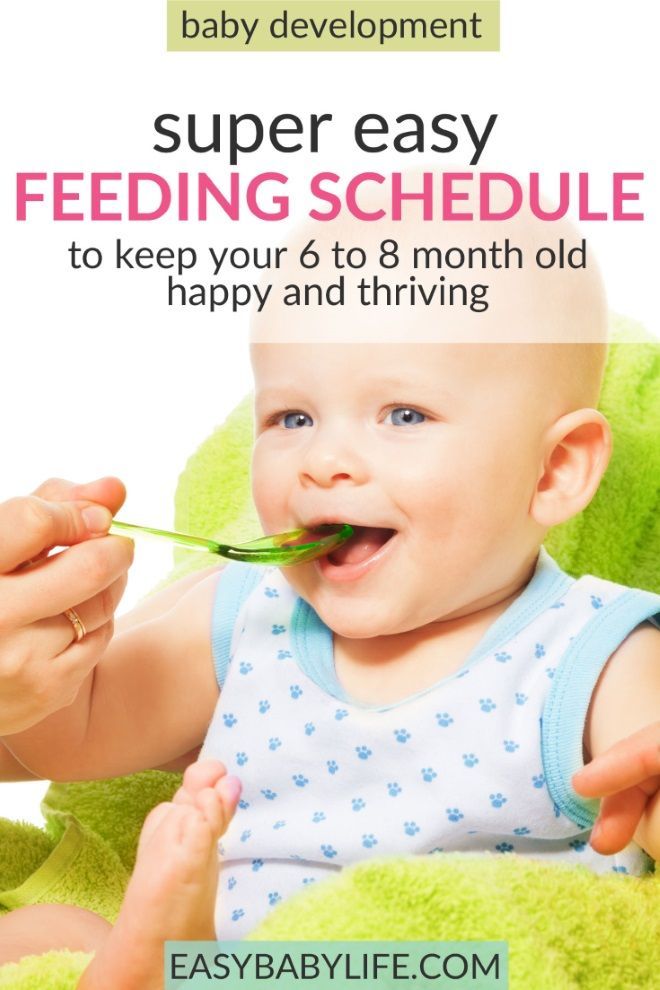 I have followed the same for both my babies.
I have followed the same for both my babies.
1. Always start with a single food. Either a fruit, vegetable or grain. Avoid a mixture of foods. You can start with mashed fruit first. The presence of digestive enzymes in fruits helps the baby to digest them better.
2. After a week, while you continue feeding fruit, you can start rice water (kanji), after a week clear dal soup or boiled vegetable broth / water.
3. Always follow the 3 day wait rule for every food you introduce. Wait for the results until the 4th day. Please see the doctor immediately if your baby develops rashes, runny nose, watery eyes, colic etc.
4. Introduce new foods to your baby during breakfast or lunch. Avoid trying new foods during the later time of the day as it is easy to get a control over the problems.
5. A 7 month old baby can eat only a tsp of mashed food initially. Slowly by 4 weeks increase the quantity to a tbsp and then more.
Helpful tips – introducing solids for baby
1.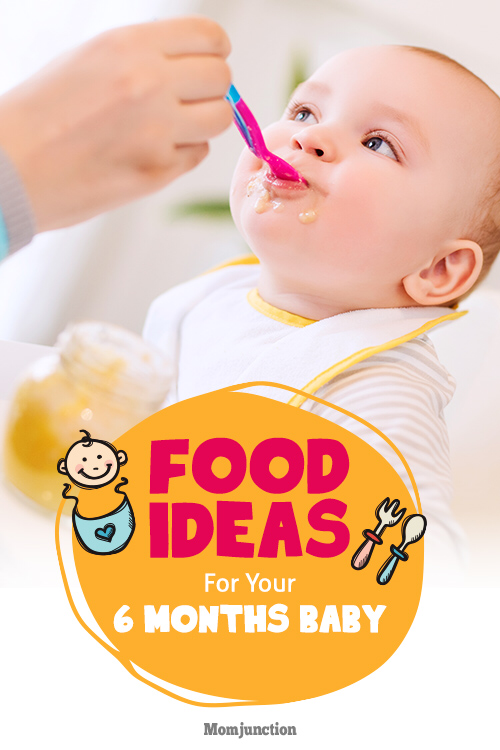 Use stainless steel or glass bowls and cups for preparation of baby foods. Avoid plastic ware even made of any superior material, including virgin plastic or graded as BPA free. Any kind of plastic ware consists of plasticizers that are used to make the containers flexible.
Use stainless steel or glass bowls and cups for preparation of baby foods. Avoid plastic ware even made of any superior material, including virgin plastic or graded as BPA free. Any kind of plastic ware consists of plasticizers that are used to make the containers flexible.
Plasticizers are similar to BPA and are an endocrine disruptor. Even BPA free plastic and virgin plastic ware have chemical plasticizers. Please use google search for more info.
2. Always feed the baby in a calm, quite environment and in a steady place like – on the lap, in a high chair or on the floor.
3. While feeding, refrain the baby from activities like watching a TV show, playing with a hand held gadget like mobile, and tablet or game devices. Some of these emit radiation that is not good for the baby.
4. Meal time has to be a learning for the baby, speaking to your baby about the food – its texture, taste and color helps the baby to develop a liking for the food. Or narrate a good story to the baby, do not encourage the baby to talk while eating.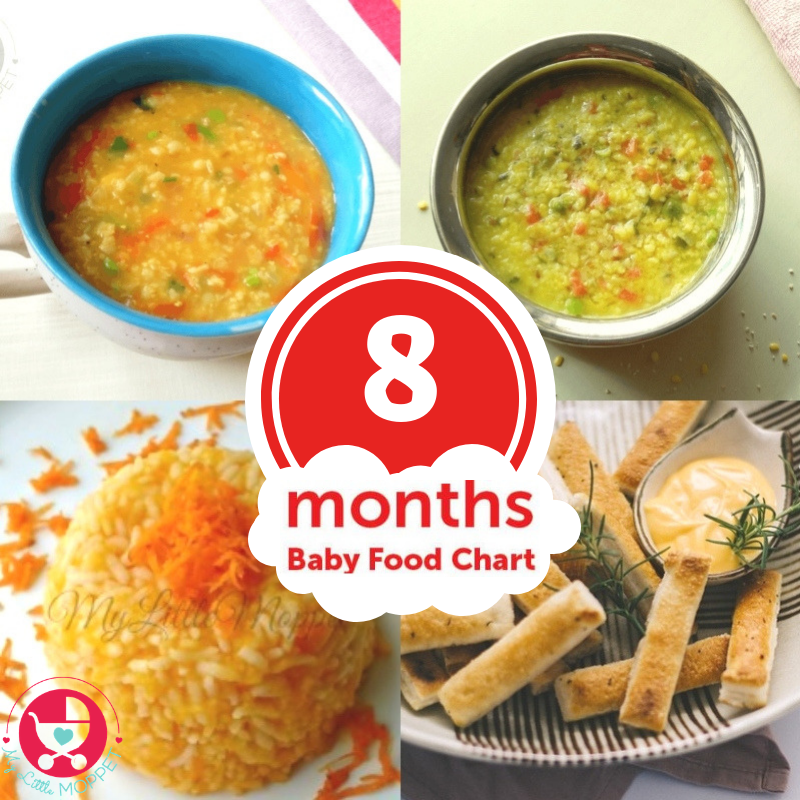 This may seem to be over disciplined but this is the only way i have found to grow fuss free kids. They will begin to love any food that is served.
This may seem to be over disciplined but this is the only way i have found to grow fuss free kids. They will begin to love any food that is served.
5. Introduce water from a steel cup or a glass not from a feeding bottle or sipper. A 90 ml cup is best suited. This makes the transition from teat to cup easy when the baby grows up.
6 months baby food chart
To follow this baby chart please ensure your baby has completed 6 months and you have an approval from your pediatrician for the same.
A baby usually consumes milk every 2 to 3 hours. Solids should be served in between the feeds. Use plain boiled and cooled water to puree the fruits if needed. Avoid mixing milk or any other ingredient with fruit.
The combination of fruit and milk products results in indigestion, loss of appetite, no weight gain and accumulation of toxins.
Clear soups can be used to make pureed rice, oats or ragi cereal. Feeding only clear soups regularly is not a good idea as they lack the nutrition that is provided by a semi solid food or milk.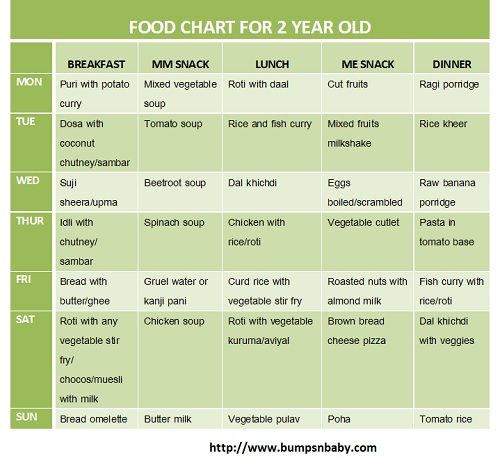
I have shared a sample baby food chart below which shows the quantities of fruits and vegetables. From the chart (day 13 to day 20), you can replace potato with rice porridge (kanji) or dal soup or ragi porridge.
This is an alternate table which you can follow if your baby is in between 6 and 7 months.
| Breastfeed or formula milk. What ever time your baby wakes up. |
7.30 to 8 am fruit puree |
| One of the following: (only after 1½ to 2 hours of milk). You can use boiled cooled water to thin down the puree. 1. Banana- mash with a fork or run in a blender. 2. Apple- peel,core,steam for about 5 to 6 minutes. Puree in a blender 3. Chickoo (sapota)- mash with a fork and spoon 4. Pear- peel and core, steam for 5 to 6 minutes 5. Papaya – mash with a fork or blend 6. Ripe avocado – add it to a blender and puree |
11. 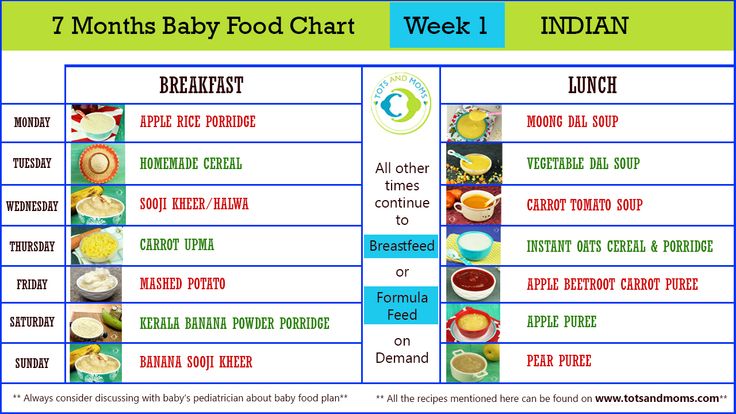 30 to 12.30 pm 30 to 12.30 pm |
| After introducing fruits, you can try these. Continue to feed fruits for breakfast. first 1 week – rice cereal 2nd week apple rice or rice cereal with boiled carrot 3rd week ragi porridge Or apple ragi or oats porridge Or apple oats Or clear moong dal soup 4th week – Repeat the foods mentioned above. You can also introduce soupy khichdi. You will have to make it following the same method I mentioned for rice cereal above. |
| Breast feed or formula (only after 1.5 to 2 hours of lunch) |
Baby food recipes for 6 months old along with ingredients and instructions to prepare
These are the quantities i followed for my kids i got from the Health Promotion Board,Singapore.Use any one
Quantity of fruits for 6 months to 9 months
½ small apple
½ small pear
½ cup sapota
½ cup papaya
½ medium banana
How many times can the same fruit be given in a week?
Including a variety of fruits will provide different kinds of nutrients to the baby.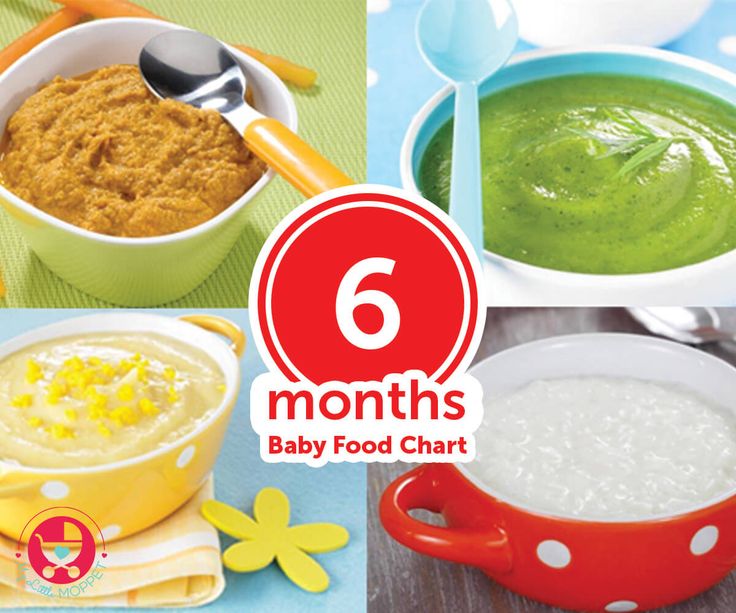
Banana – 3 to 4 times
Apple – daily
Chickoo- daily
Pear- 3 to 4 times
Papaya – 4 to 5 times
Avocado- 3 to 4 times or daily
Do read the complete post before you attempt any of these recipes
More tips on preparing Lunch
from 3 rd week – Rice, ragi or oats. Clear dal soup with veggie.
first 7 days (from 3rd week) -Single grain with milk (formula or breast milk). You can also use gluten free or baby oats or ragi to make porridge.
next 7 days – Rice with a single veggie or apple. You can use steamed or boiled carrots.
VEGETABLES to prefer
1. carrots
2. pumpkin
LENTIL/ DAL to prefer
1. moong dal
2. toor dal
About Swasthi
I’m Swasthi Shreekanth, the recipe developer, food photographer & food writer behind Swasthi’s Recipes. My aim is to help you cook great Indian food with my time-tested recipes. After 2 decades of experience in practical Indian cooking I started this blog to help people cook better & more often at home.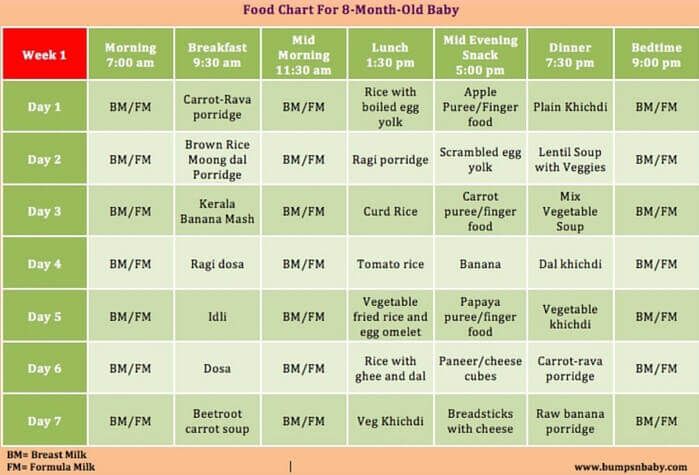 Whether you are a novice or an experienced cook I am sure Swasthi’s Recipes will assist you to enhance your cooking skills.
Whether you are a novice or an experienced cook I am sure Swasthi’s Recipes will assist you to enhance your cooking skills.
Follow Swasthi’s Recipes
Sign up to receive awesome Swasthi’s Recipes in your inbox *
Popular Recipes
Featured Recipes
Baby applesauce: the safest for the little ones
/ All materials
Security? Better. Sterility
When stale apples that have already begun to spoil are used in the manufacture of mashed potatoes, mycotoxins remain in the finished mash even after heat treatment.
According to the results of the examination, patulin was found only in puree "Grandmother's Basket" and Hipp , but its amount (50-60% of the maximum allowable level) is so insignificant that it cannot harm the child. nine0003
The experts also tested all applesauce for 5-hydroxymethylfurfural (5-HMF).
Compared to canned mashed potatoes and homemade mashed potatoes, which one is safer and of better quality?
Artem Samoilov, head of the testing laboratory VNIIKOP:
The sourest, sweetest and most fortified
The makers of Grandma's Basket and Heinz seem to have chosen the sweetest varieties. nine0003
Puree Gerber turned out to be sour in taste - the most expensive among the tested samples. At the same time, its acidity, determined in the laboratory, as well as the acidity of all other purees, complies with the standards. This means that the manufacturers used only ripe apples - when making puree from unripe fruits, the acidity would be high.
The manufacturer of mashed potatoes Heinz did not regret “ascorbic acid”: its quantity is maximum compared to other samples.
The vitamin C content in a jar of this applesauce is 2.5 times the daily requirement of a child under the age of one year. However, there is nothing wrong with this: such a content of the vitamin meets the requirements of the standards, and the consumption of ascorbic acid in such quantities does not pose a danger to the health of the child. nine0003
However, there is nothing wrong with this: such a content of the vitamin meets the requirements of the standards, and the consumption of ascorbic acid in such quantities does not pose a danger to the health of the child. nine0003
According to the results of the examination of Roskontrol, all tested apple purees turned out to be safe and of high quality. You can safely choose the one that you like best for the price, and the child for the taste.
At what age should applesauce be introduced into a child's diet? On jars they write “from 3.5 months”, “from 4 months”, how is it really right?
Andrey Mosov, head of the expert department of NP Roskontrol, doctor:
Test details
September 10, 2014
Advertising
Advertising
The name of the Steacher Organization
Contact name
Position
Phone
052
Name of the declared product (goods)
I have read and accept the Rules for the Functioning of the Independent Quality Control System "Roskontrol".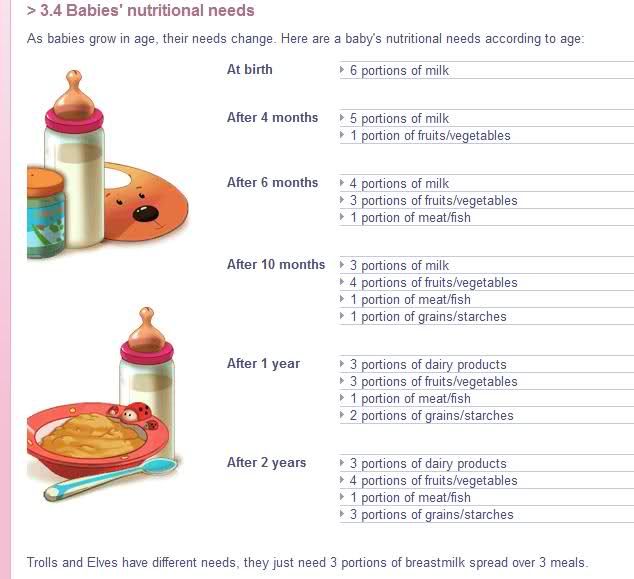
Name of goods
Category of goods
Brand
barcode
Information about
Main characteristics
9000 ×
Tariff
You have selected subscription level Free .
The subscription price is now 0.00₽ .
Subscriber Registration Already have an account? Login here
Username
Password
Name
Surname
Full Name LEAVE IT BLANK
Processing...
Baby food - Roskontrol
Useful articles
News
March 22, 2022
Nestle and Unilever will raise prices up to 45%
The cost of all Nestle chocolate products will be increased by 25%, Nescafe coffee - by 40%, baby food (Gerber, Nan Optipro, Nestogen) - by 20-30%, cocoa and drinks Nesquik - by 20-25%. Also, ready-made breakfasts (Cini Minis, Fitness, Kosmostars) will increase in price by 20-30%, and Starbucks and Dolce Gusto brands by 30%.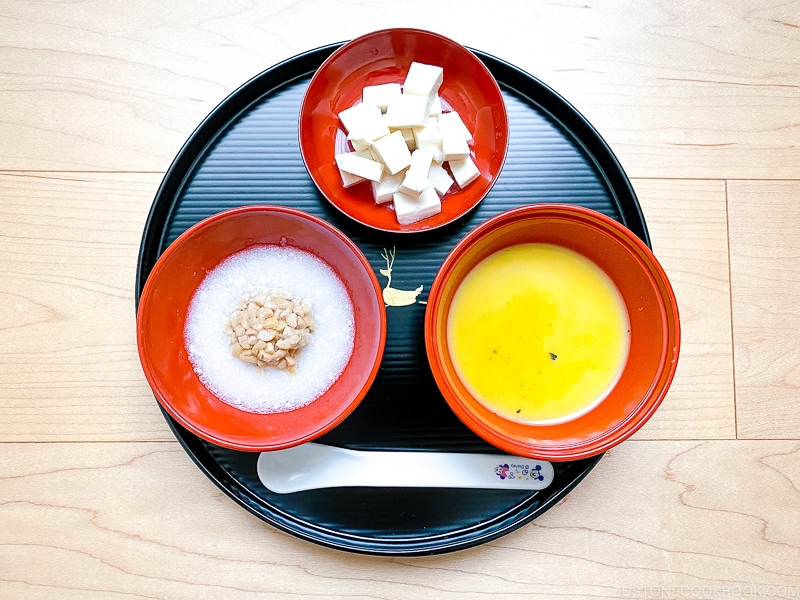 Unilever also with...
Unilever also with...
March 22, 2022
Detsky Mir freezes prices for three months
The largest Russian retailer of children's goods fixed prices for 90 positions, including baby food, baby hygiene products, feeding supplies, clothing and footwear, at the level of January 2022. Previously, the FAS, on the basis of requests received from citizens, sent a request to the Detsky Mir group of companies to provide data on the reasonableness of price increases. And also warned that...
February 16, 2022
Business predicts price increase for baby puree due to experiments with labeling
According to manufacturers, the introduction of a control system in the industry threatens a shortage and price increases of at least 10%. The business has therefore proposed to exclude baby puree made from meats, vegetables and fruits from the labeling experiment, which could begin as early as May 2022. From the letter that the Association of Manufacturers "Rusbrand" sent to the Ministry of Economic Development, it follows that for foreign products it was .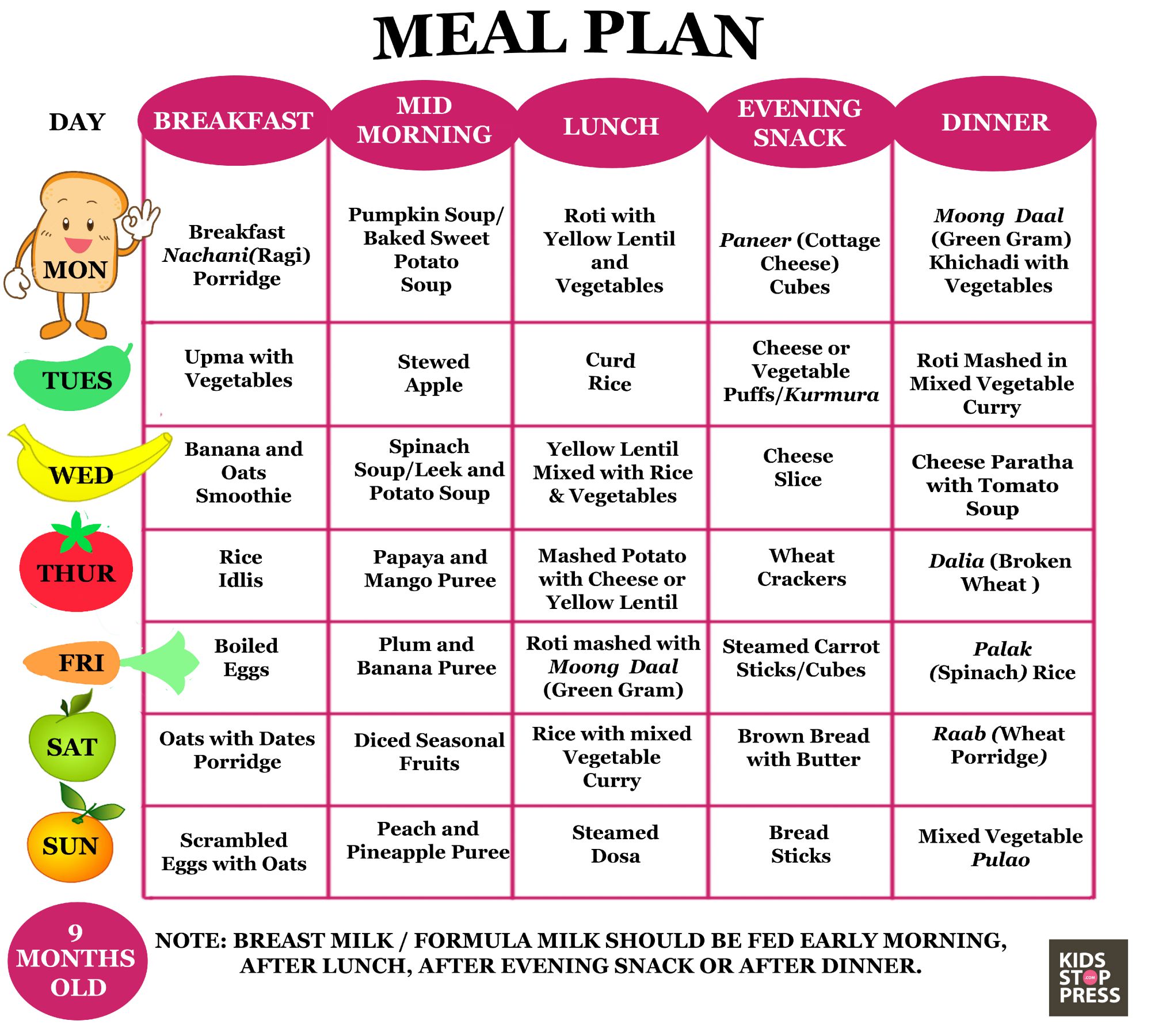 ..
..
January 26, 2022
Baby cereals will become 15.5% more expensive from February
The largest manufacturer of baby food, known under the brand name FrutoNyanya (JSC Progress), told retail chains that it was forced to raise prices from February 1 by an average of 15.5%. The reasons for this are more than known - the rise in prices for raw materials, logistics, packaging components, and, in principle, unfavorable weather conditions for the production of crops. Company representatives so...
Goods with a quality mark
Black list
The ideal baby food up to 6 months is breast milk, but if it is not possible to feed the baby with mother's milk, then mixtures that are sold in stores come to the rescue. When choosing a ready-made mixture, follow the rule: the closer the mixture is to breast milk in composition, the better.
All formulas are thoroughly tested before entering the store, so they are all safe, which cannot be said about homemade food.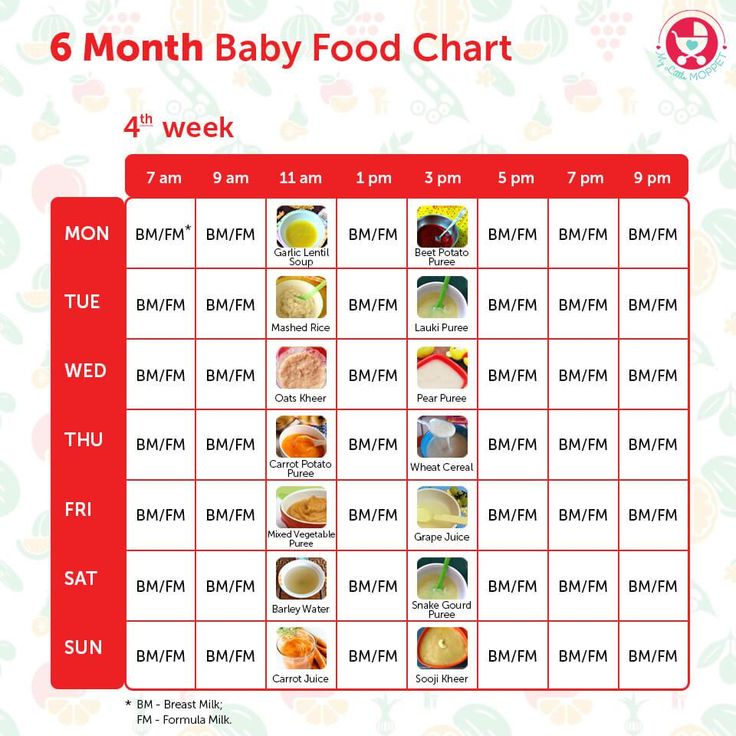 But their price may differ, depending on how high-quality and modern the mixture is. nine0052 More modern formulas usually contain ingredients that have only recently been scientifically proven to be useful (eg, lutein). But this does not mean that traditional mixtures that do not contain this substance should be abandoned.
But their price may differ, depending on how high-quality and modern the mixture is. nine0052 More modern formulas usually contain ingredients that have only recently been scientifically proven to be useful (eg, lutein). But this does not mean that traditional mixtures that do not contain this substance should be abandoned.
From 6-7 months, the baby begins to receive complementary foods, and by 8-9 months, the proportion of mixtures in the child's diet is reduced to 50%, and the rest falls on fruit and vegetable puree, dairy-free cereals from ground cereals that do not contain gluten. At the second stage of complementary foods, meat puree can be introduced into the diet. It is not recommended to give juices to children under 1.5 years old. nine0052 Children under 1 year of age should not drink tea. It is better to boil baby water before drinking.
Starting from the age of 1, the baby can eat cottage cheese and other unsweetened fermented milk products. You need to be careful with yogurt: it may contain sugar, which is not recommended for children at this age.